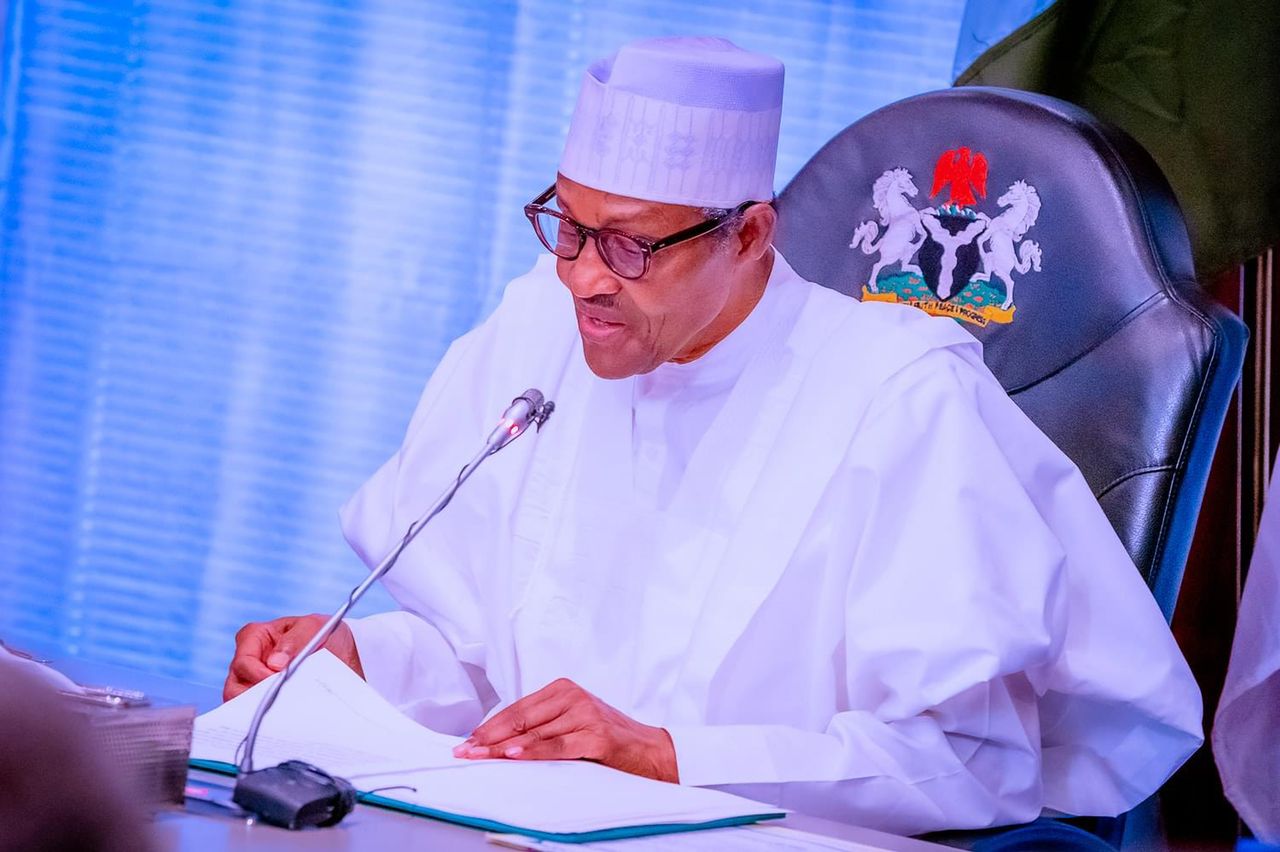Oil theft: Buck stops at President Buhari’s table
Recent reports indicating that Nigeria has lost its position as the number one oil producing country in Africa to Angola and Libya which are now first and second respectively should be alarming to the federal government and stakeholders in the oil and gas sector and the Nigerian economy in general. However, as alarming as this […]

President Muhammadu Buhari
Recent reports indicating that Nigeria has lost its position as the number one oil producing country in Africa to Angola and Libya which are now first and second respectively should be alarming to the federal government and stakeholders in the oil and gas sector and the Nigerian economy in general.
However, as alarming as this development is, it is not surprising given the present realities in the sector.
By all accounts and from the findings of various surveys on the state of Nigeria’s oil and gas industry, the number one issue has to do with the incidence of oil theft which affects over half of the country’s total production capacity.
In a recent statement by Bala Wunti, the Group General Manager of the National Petroleum Investment Management Services (NAPIMS), an arm of the Nigerian National Petroleum Company Limited (NNPCL), Nigeria loses about 470,000 barrels per day (bpd) of crude oil, amounting to $700m monthly due to oil theft, representing about 20 per cent of Nigeria’s daily output.
Corroborating this in a recent report, the Nigeria Extractive Industries Transparency Initiative (NEITI) stated that Nigeria lost about 42.25 million barrels of crude oil valued at $2.77bn in 2019. Alarmingly, the NEITI report of 2020 revealed that Nigeria earned $20.43bn from the oil and gas sector, representing a decline of about 40 per cent compared to the $34.22bn realised from the sector in 2019.
Situating where the nexus of the oil theft lies, the Chief Executive Officer of NNPCL, Mele Kyari, said recently that highly placed Nigerians, including religious and community leaders, security and government officials, were fully involved.
He said security operatives discovered, “342 illegal oil reservoirs, 335 cooking pots, 959 metal tanks, 37 trucks, 452 dug-out pits, 737 ovens, 37 speed boats and 11 vessels used by pipeline vandals in their illegal activities.’’
As an immediate stop gap measure, he said that the entire network of petroleum products distribution in the country had been shut down as a result of the activities of the pipeline vandals, adding that investigation revealed that stolen crude oil was wharehoused in churches and mosques in several locations in the country with the knowledge of members of society, including clerics.
From all indications, the scale of oil theft in the country’s oil and gas sector is massive and devastating. So massive indeed that the Nigeria Upstream Petroleum Regulatory Commission (NUPRC) has asked for a declaration of a state of emergency in the sector.
Against this dismal background, it is hardly surprising that Nigeria has tumbled from being the number one oil producing country to number three as recent figures indicate. That accounts for why Nigeria is hardly able to meet the quota of 1.8 million barrels per day allocated to it by the Organisation of Petroleum Exporting Countries (OPEC). Nigeria’s present production which oscillates between 1.2 million and 1.4 million bpd means that the country is always short of between 400,000 to 600,000 bpd, most of which is stolen and unaccounted for.
This is a very sad development and it is most unfortunate that the authourities allowed it to grow to this level, where apart from costing the country revenue, it has cost it its spot among oil producing nations. It is worthy of note here that the oil theft grew because the president did not give it the sort of priority and attention that it deserves. It is mind boggling that instead of guarding our major revenue earner jealously, it is being left at the behest of criminals who do not wish the country well.
Only recently, a report published by The Economist mentioned low production as one of the major reasons preventing Nigeria from profiting from the global oil boom. This should worry all stakeholders. We believe that as the country’s oil and gas company, NNPCL cannot escape blame for this dismal state of affairs in the sector. Indeed, we make bold to say that as the substantive Minister of Petroleum, President Muhammadu Buhari should own up and take the flak for the failing fortunes of the sector.
We believe that a situation where Nigeria under his watch would lose its place as the largest oil producer in Africa is unacceptable. Bearing in mind that Libya, which for all practical purposes is without a central government now, ranks above Nigeria in oil production shows clearly that the president has not been up to scratch as expected of him by Nigerians.
While we have taken note and indeed applaud plans being made to restructure the sector, prominent of which is the passage of the Petroleum Industry Act (PIA), we believe that such plans can only come to fruition if fundamental issues bedevilling the industry such as oil theft are comprehensively addressed.
The government must act, and quickly too, to stop this act. It should also invest in cutting edge pipeline surveillance and integrity technology in order to secure the network of pipelines crisscrossing the country. Citizens also have a role to play here, by reporting saboteurs to security operatives. The crude is the country’s heritage and should be protected from criminals.
